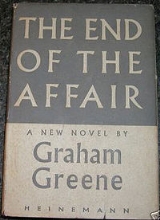
In Brooklyn, NY there appears to be a flurry of enticing written work that is spreading far and wide. I was recently fortunate to interview one of the borough’s poetic practitioners whose work I greatly enjoy: Ben Fama. In an effort to try and place where the Brooklyn scene stands for the rest of the world, I put forth the following…
DJ: Since Whitman, Brooklyn has always maintained a literary heritage. In your opinion how strong is Brooklyn’s place in world literature?
BF: Whitman wrote at a time when everyone was focusing on the violence and injustices that the different social groups in the city were enacting on each other. But he remained open, and refused that cynicism. He saw through the violence to a city of pleasure; probably because he actually was in love with all the different types of people you could see around (and still can).
Right now, its hard to say how Brooklyn is affecting world literature, however, I think it is the best city in the nation for writers. So in that sense, it’s the most important place for American writing. And as much as American writing influences what else is going on, Brooklyn rules; though it seems like we’re taking influence from other places, like Berlin, and the eastern European countries.
DJ: I have heard your work compared to Frank O'Hara’s. He seemed to draw his material from the people and landscape in which he thrived. In your new book, "Aquarius Rising" do you feel that your influences were more celestial or culled from the city around you?
BF: I remember reading that most people don’t read their own work, so I got nervous and then tried to start doing this. I’ve realized that the biggest influences on me are the intimate friendships and relationships I’m a part of, and enduring in the present that we are always trying to make something from. I guess I’m just saying that there are deeper things that have an effect on you whether you accept that or not, and for me that idea is a source for my primary imagination to understand what I think about things. Skeptics will say, there are so many contradictions around us, they mean nothing. Mystics say, there is so much, something has to be true. For me the most fun is to get in there and fuck with that. My influences are private desires, and my poems inevitably voice collective concerns.
About Frank O’Hara: I always thought his biggest lesson was in the way he could turn out a poem without taking it too seriously, even if the poem was thematically serious. I also think that when people talk about “The New York School” they really mean Frank O’Hara. He died 44 years ago, which is 4 years longer than he lived. When I think about the most exciting writing happening right now, I usually look a little outside NYC. For instance some of my neighbors, Christian Hawkey and Uljana Wolf split time between Brooklyn and Berlin. Uljana has just been featured in the Chicago Review as part of a portfolio of Berlin poets. Also my favorite poet, Tomaz Salamun, is Slovenian. I would take him over Ashbery ten times out of ten.
DJ: One of your lines "Try doing something beautiful / it's like wrestling yourself out of an executive headlock" stood out to me. Do you feel that your work is beautiful, and if so, what did you have to break free from?
BF: Sure; the influence of the past, and the limits of my own imagination. Every time I try something new in a poem I suppose it is like breaking out of a headlock.
DJ: The book is out now on Ugly Duckling Presse. They also dedicate a lot of energy to re-discovering and translating foreign poets. As a writer, are these translations of value to your craft, and do you hope to have your work treated with the same consideration elsewhere?
BF: Two of my favorite books by Ugly Duckling are Marina Temkina’s WHAT DO YOU WANT, and Tomaz Salamun’s POKER. Both still in print. Both of these books were formative to the way I think about the architecture and vibe of a poem. They also published a translation of Elena Fanailova’s THE RUSSIAN VERSION and won a big award for that. Genya Turovskaya, one of the best poets writing right now, co-translated that book. She’s one of the editors of the Eastern European Poets Series, along with Matvei Yankelevich, who is sort of the de-facto face of UDP, and quite a good poet too. If my work ever received the same treatment that this team gives to their foreign language translations, I would be getting the best kind of treatment possible.
DJ: Is there any advice you'd impart to those who are interested in translating and discovering new work?
BF: Send Facebook pokes relentlessly to your favorite poets, even if you don’t know them. Eventually they’ll listen.
Ben Fama is the author of the chapbook Sun Come and co-author of the chapbook Girl Boy Girl Boy (Correspondences, 2010). He is the founder of the Brooklyn-based Supermachine Reading Series and poetry journal. His work has appeared in GlitterPony, Pank! and No, Dear Magazine, among others.
The trailer for "Aquarius Rising" can be found here:
http://www.youtube.com/watch?v=McLSGG6ABMQ

